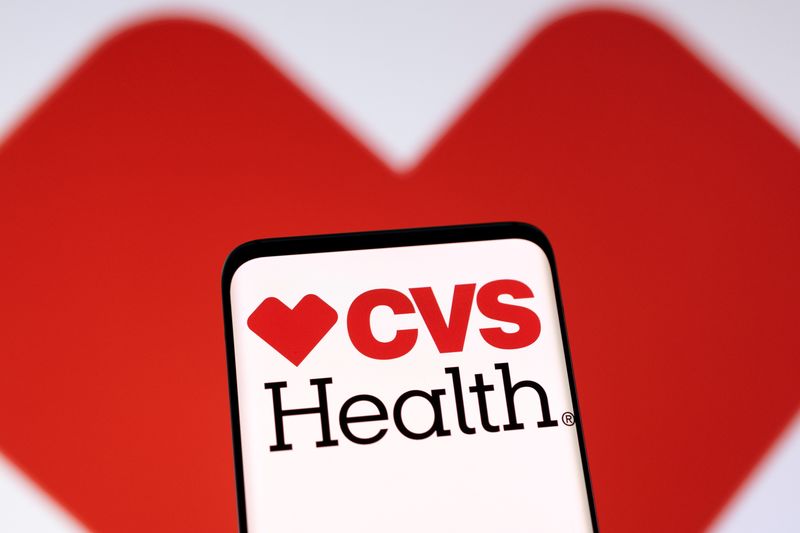CVS names former UnitedHealth exec to run Aetna, shares jump
By Amina Niasse and Sriparna Roy
(Reuters) -CVS Health on Wednesday named Steve Nelson, a former UnitedHealth (NYSE:UNH ) insurance head, to run its Aetna business, where rising medical costs in the third quarter caused the company to preannounce an earnings miss last month.
The company last month also replaced CEO Karen Lynch with David Joyner due to troubles managing costs in that business.
CVS, which also owns a pharmacy benefit manager and one of the largest U.S. retail pharmacy chains, has come under investor pressure, including from activist hedge fund Glenview Capital Management.
CVS's beaten down shares rose more than 11%. Stocks of other health insurers were also buoyed on Wednesday after Donald Trump was elected U.S. president for a second term.
Nelson's appointment, effective immediately, "lends a lot of credibility, and this is what Joyner needed to do," said James Harlow, senior vice president of Novare Capital Management, which owns more than 94,000 CVS shares, according to a recent filing. "This would be step one in terms of a recovery in that unit."
CVS reported a third-quarter adjusted profit of $1.09 per share, less than half of the $2.21 it earned a year ago. That was in line with its pre-reported earnings of $1.05 to $1.10 per share.
The company's shares are still down almost 23% so far this year, compared with a nearly 20% gain for the broader S&P 500 .
Following the COVID-19 pandemic, medical services use rose after its Medicare plans for people aged 65 and older or disabled enrolled the highest amount of new members in the industry. As states redetermined Medicaid eligibility, healthier people fell off the rolls, leaving behind those who require more medical services.
The company underestimated medical costs when pricing its healthcare benefits for 2024, Joyner said in a call to discuss third-quarter results. "I recognize that we have been more acutely impacted than others in the industry."
Chief Financial Officer Tom Cowhey said the level of disconnect between use of medical services and the payment rates from state Medicaid plans had stabilized toward the end of the third quarter. "We continue to work closely with our state partners to align rates with changes in (use)."
The company also named Prem Shah, chief pharmacy officer, as its group president. He will be responsible for its Caremark pharmacy benefits unit, CVS Pharmacy, and the company’s healthcare delivery businesses.
The company declined to provide a 2024 forecast on Wednesday.
During the third quarter, CVS recorded a charge of about $1.1 billion related to anticipated fourth-quarter losses in Medicare and individual health plans.
The company's medical benefit ratio, or the percentage of premiums spent on healthcare for its members, rose to 95.2% from 85.7% in the year-ago quarter, in line with its announcement last month. That is far higher than the 80% ratio many companies target.
The ratio in the fourth quarter could increase by 7% from the year earlier ratio of 88.5% if demand for medical services continues as it has, Cowhey said.
The healthcare conglomerate confirmed it would take $1.2 billion in restructuring charges for layoffs, store closures and closing down certain businesses.
Revenue in the health care benefits unit rose 25.5% to $33 billion, driven by growth in the Medicare and commercial health insurance businesses.
Sales in the health services division, which includes the Caremark pharmacy benefits business, fell 6% to $44.13 billion, primarily due to the loss of a large client.
Its pharmacy and wellness revenue increased 12.3% to $32.42 billion, buoyed by increased prescription volume.
Source: Investing.com
